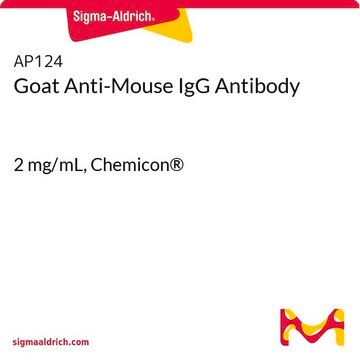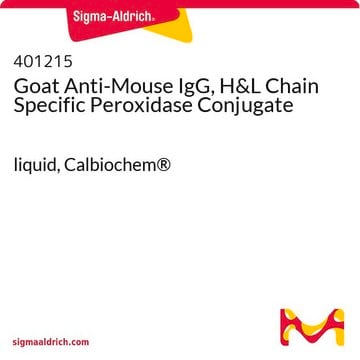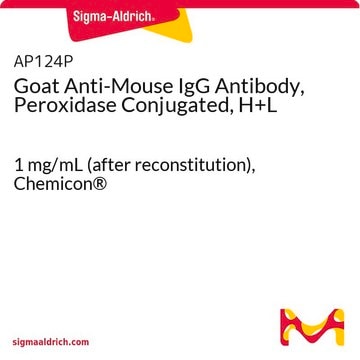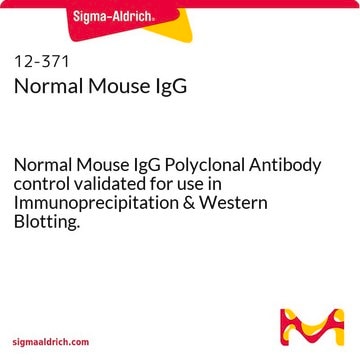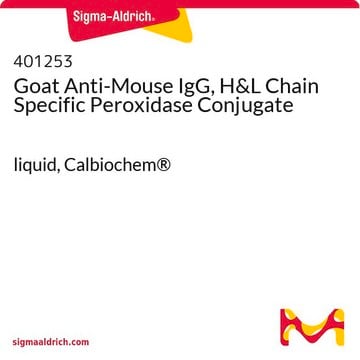401393
Goat Anti-Rabbit IgG, H & L Chain Specific Peroxidase Conjugate
liquid, Calbiochem®
Synonym(s):
Goat IgG antibody, Goat anti-rabbit IgG, Peroxidase conjugate
About This Item
Recommended Products
biological source
goat
Quality Level
antibody form
affinity isolated antibody
antibody product type
secondary antibodies
clone
polyclonal
form
liquid
contains
0.02% thimerosal as preservative
manufacturer/tradename
Calbiochem®
storage condition
do not freeze
isotype
IgG
shipped in
wet ice
storage temp.
2-8°C
target post-translational modification
unmodified
General description
Immunogen
Application
Immunoelectrophoresis (see comments)
Warning
Physical form
Other Notes
Legal Information
Disclaimer
Not finding the right product?
Try our Product Selector Tool.
Storage Class Code
12 - Non Combustible Liquids
WGK
WGK 2
Flash Point(F)
Not applicable
Flash Point(C)
Not applicable
Certificates of Analysis (COA)
Search for Certificates of Analysis (COA) by entering the products Lot/Batch Number. Lot and Batch Numbers can be found on a product’s label following the words ‘Lot’ or ‘Batch’.
Already Own This Product?
Find documentation for the products that you have recently purchased in the Document Library.
Our team of scientists has experience in all areas of research including Life Science, Material Science, Chemical Synthesis, Chromatography, Analytical and many others.
Contact Technical Service

